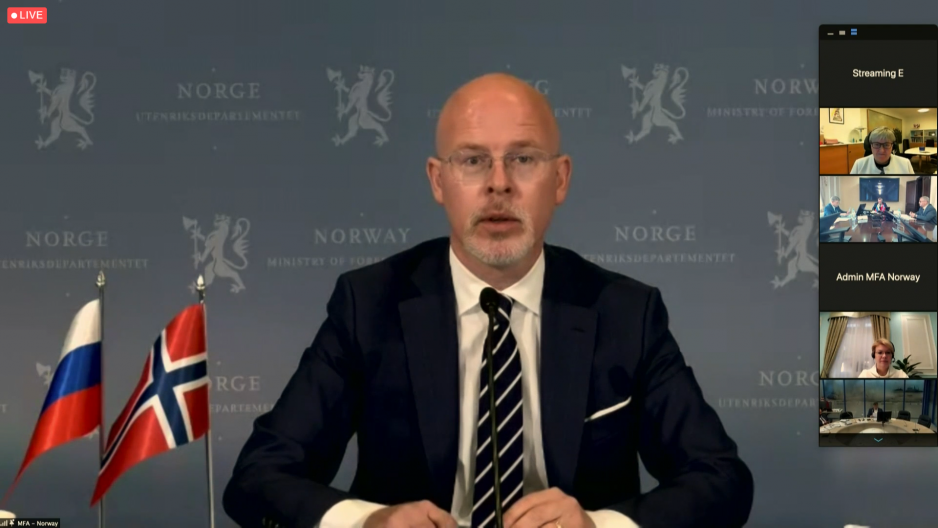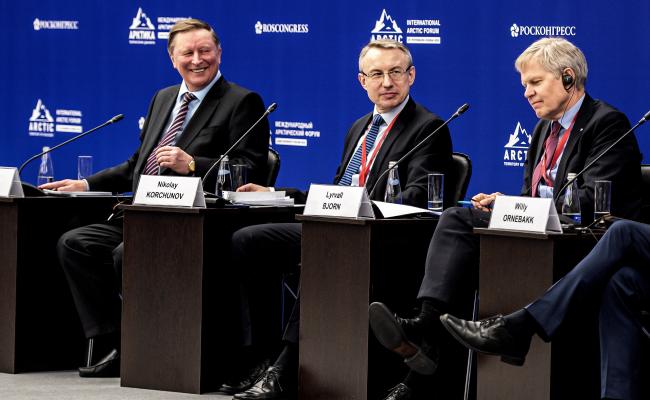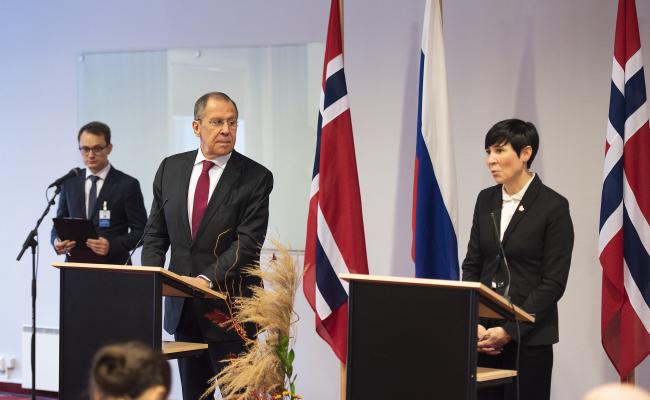Nuclear Safety is Still a High Priority in Norway's Cooperation with Russia

"Safe handling and removal of spent nuclear fuel and radioactive waste from Andreyev Bay is still among Norway's most important priorities in nuclear safety cooperation, said State Secretary Audun Halvorsen. (Screenshot: HNN)
“As long as there are nuclear activities and sources of pollution that can affect health and the environment in the High North, there is a need to continue our good and long-term nuclear safety cooperation", said State Secretary Audun Halvorsen.
On Wednesday, the 24th joint Norwegian-Russian commission meeting on nuclear and radiation was held. It is one of the few Western-Russian contact points that are still active and working. This year, the collaboration celebrates its 25th anniversary.
The agenda for the meeting included the handling of spent nuclear fuel and radioactive waste in northwestern Russia, cooperation on warning and nuclear preparedness, environmental monitoring, and safety at Russian nuclear power plants.
Decrease in radioactive waste
“Today we can state the fact that there has been a serious decrease in the volumes of radioactive waste in most facilities in North-West Russia”, said Oleg Kryukov, Director for the State Policy in the Field of RW and SNF Management and Nuclear Decommissioning, ROSATOM.
In 2019, Norway provided funding for the extraction and transport of spent nuclear fuel from Andreyev Bay for the first time.
"Safe handling and removal of spent nuclear fuel and radioactive waste from Andreyev Bay is still among Norway's most important priorities in nuclear safety cooperation. It is, of course, a Russian responsibility to carry out this work in accordance with international standards, but we are happy to be able to contribute to the process and follow it", said State Secretary Audun Halvorsen.
Improved dialogue
The dialogue and contact between the Norwegian Radiation Protection Authority (DSA) and Rosatom State Atomiс Energy Corporation have improved during the pandemic.
“Although we have had a pandemic for a little over a year now, we have had a very good dialogue with ROSATOM during this time. In fact, we have had more frequent contact and dialogue than we are used to. We have agreed to continue this virtual contact even after the pandemic is over. We see a more continuous dialogue as very positive”, said Per Strand, General Director, DSA.
Preparedness
At the end of the meeting, a question and answer session was held with Russian and Norwegian non-governmental organizations and media.
Kjersti Album, a project manager at the Norwegian Society for the Conservation of Nature, asked if there are sufficient plans and preparedness from the authorities when it comes to transportation of radioactive materials along the Russian and Norwegian coast.
“From the Norwegian side, we are well prepared with established permanent preparedness for nuclear incidents. This concerns both transport in Norwegian maritime territory and in our immediate neighborhood. This is one of the topics that were discussed in great detail and in-depth today. Co-operation related to emergency preparedness, notification routines, and handling is a central part of the nuclear safety co-operation between our countries' relevant radiation protection authorities”, said State Secretary Audun Halvorsen.



